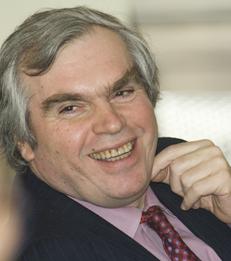Opinion
How Greece’s Troubled Economy Could Turn Around in 2017
—


Reforms and fiscal discipline is the only way for Greece to survive and prosper in the European Union.
By Nicholas Economides
Violating the terms of its bailout program, the Greek government recently announced that it will distribute a sizeable “Christmas gift” to Greek pensioners even though this requires additional borrowing from the EU since the Greek budget is not balanced and Greece cannot borrow from money markets. The move has prompted the EU finance ministers to freeze implementation of debt restructuring. Greece is at the brink again.
This is the modern-day, Greek economic tragedy. But unlike the three-acts ancient Greek tragedies, we’ve seen many acts and often the horrible events happen on stage. Of the main actors, the Greek government repeatedly threatens with suicide elections; the IMF tries to apply the same rules to all countries irrespective of development level; the EU bureaucrats paint a rosy picture with no grounding in reality or economics, and German Finance Minister Wolfgang Schaeuble keeps reading the same austerity rulebook no matter what the circumstances. Even worse, there is practically no dialogue among the actors – they deliver their monologues past each other, each trying to please a different chorus. How did we get here (again), is there hope, and, more importantly, and how does it end?
Read the full article as published in Fortune.
___
Nicholas Economides is a Professor of Economics.
This is the modern-day, Greek economic tragedy. But unlike the three-acts ancient Greek tragedies, we’ve seen many acts and often the horrible events happen on stage. Of the main actors, the Greek government repeatedly threatens with suicide elections; the IMF tries to apply the same rules to all countries irrespective of development level; the EU bureaucrats paint a rosy picture with no grounding in reality or economics, and German Finance Minister Wolfgang Schaeuble keeps reading the same austerity rulebook no matter what the circumstances. Even worse, there is practically no dialogue among the actors – they deliver their monologues past each other, each trying to please a different chorus. How did we get here (again), is there hope, and, more importantly, and how does it end?
Read the full article as published in Fortune.
___
Nicholas Economides is a Professor of Economics.
